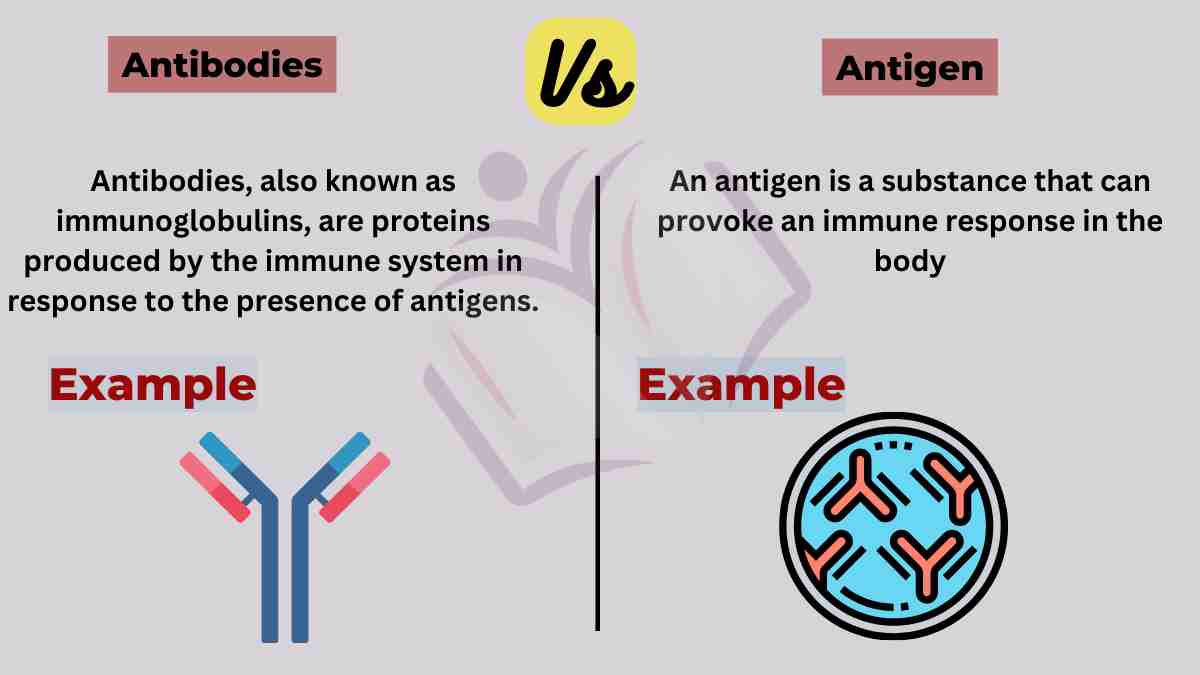The major difference between antibodies and antigen is that antibodies are proteins produced by the immune system in response to the presence of antigen (which are foreign substances that trigger an immune response). Antibodies specifically recognize and bind to antigens to neutralize or eliminate them from the body.

What is an antibody?
An antibody, also known as an immunoglobulin, is a Y-shaped protein molecule produced by the immune system in response to the presence of foreign substances called antigens. It is a crucial component of the adaptive immune system, which defends the body against pathogens, such as bacteria, viruses, fungi, and parasites.
Antibodies are produced by specialized white blood cells called B cells (B lymphocytes). Each B cell produces antibodies that are specific to a particular antigen. When an antigen enters the body, it stimulates the B cells to undergo a process called clonal expansion, resulting in the production of many identical copies of the antibody that recognizes the specific antigen.
What is Antigen?
An antigen is a substance that is recognized by the immune system as foreign or non-self and triggers an immune response. It can be a molecule, such as a protein, carbohydrate, or lipid, or a part of a larger structure, such as a virus, bacteria, or cancer cell.
Antigens are typically found on the surface of cells or pathogens, where they can be recognized by specialized cells of the immune system, such as B cells and T cells.
Antibodies vs Antigen
The main difference between antibodies and antigen is given below:
| Antibodies | Antigens |
| Proteins are produced by the immune system. | Foreign substances that trigger an immune response. |
| Bind to antigens to neutralize or eliminate them. | Recognized and targeted by antibodies. |
| Provide immunity and defense against pathogens. | Can be proteins, carbohydrates, or other molecules. |
| Produced in response to exposure to antigens. | Present on the surface of pathogens or other foreign substances. |
| Highly specific, targeting particular antigens. | Can be self-antigens (produced by the body) or non-self-antigens (from external sources). |
